Filter by

Situating Women : Gender Politics and Circumstance in Fiji
Since the time of decolonisation in Fiji, women’s organisations have navigated a complex political terrain. While they have stayed true to the aim of advancing women’s status, their work has been buffeted by national political upheavals and changing global and regional directions in development policy-making. This book documents how women activists have understood and responded to these cha…
- Edition
- -
- ISBN/ISSN
- 9781922144157
- Collation
- 278
- Series Title
- -
- Call Number
- 305.4099611.GEO
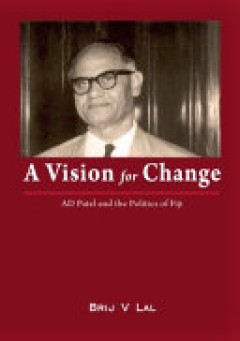
A Vision for Change: AD Patel and the Politics of Fiji
‘Dr Lal’s book is more than an eloquent account of the political struggle of one of Fiji’s outstanding leaders. It is a timely reminder that the process of constitutional change hangs in the balance, as it did at the time of Mr Patel’s death. I hope his example will inspire future generations in Fiji to realise the vision articulated by a brilliant and courageous advocate of democracy, …
- Edition
- 23
- ISBN/ISSN
- 9781921666599
- Collation
- 308
- Series Title
- -
- Call Number
- 320.099611.LAL
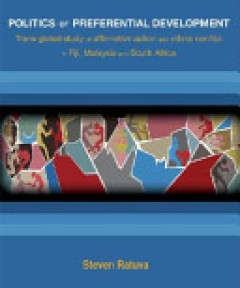
Politics of preferential development : Trans-global study of affirmative acti…
The book is a critical examination of affirmative action, a form of preferential development often used to address the situation of disadvantaged groups. It uses a trans-global approach, as opposed to the comparative approach, to examine the relationship between affirmative action, ethnic conflict and the role of the state in Fiji, Malaysia and South Africa. While affirmative action has noble g…
- Edition
- 12
- ISBN/ISSN
- 9781925021035
- Collation
- 282
- Series Title
- -
- Call Number
- 305.8.RAT
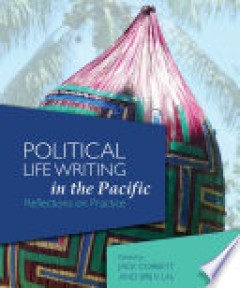
Political Life Writing in the Pacific : Reflections on Practice
This book aims to reflect on the experiential side of writing political lives in the Pacific region. The collection touches on aspects of the life writing art that are particularly pertinent to political figures: public perception and ideology; identifying important political successes and policy initiatives; grappling with issues like corruption and age-old political science questions about le…
- Edition
- 20
- ISBN/ISSN
- 9781925022612
- Collation
- 180
- Series Title
- -
- Call Number
- 324.2092.COR

Making Change Happen : Black and White Activists talk to Kevin Cook about Abo…
This book is a unique window into a dynamic time in the politics and history of Australia. The two decades from 1970 to the Bicentennial in 1988 saw the emergence of a new landscape in Australian Indigenous politics. There were struggles, triumphs and defeats around land rights, community control of organisations, national coalitions and the international movement for Indigenous rights. The cha…
- Edition
- 11
- ISBN/ISSN
- 9781921666742
- Collation
- 448
- Series Title
- -
- Call Number
- 303.484.COO
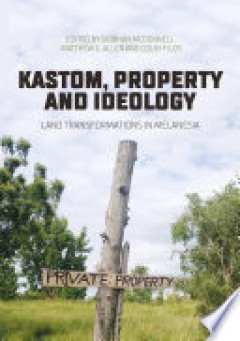
Kastom, property and ideology : Land transformations in Melanesia
The relationship between customary land tenure and ‘modern’ forms of landed property has been a major political issue in the ‘Spearhead’ states of Melanesia since the late colonial period, and is even more pressing today, as the region is subject to its own version of what is described in the international literature as a new ‘land rush’ or ‘land grab’ in developing countries. T…
- Edition
- 11
- ISBN/ISSN
- 9781760461065
- Collation
- 434
- Series Title
- -
- Call Number
- 333.73130995.MCD
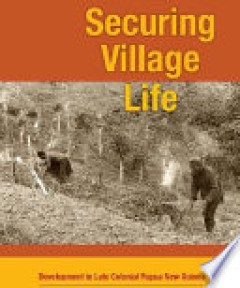
Securing Village Life : Development in Late Colonial Papua New Guinea
Securing Village Life: Development in Late Colonial Papua New Guinea examines the significance for post-World War II Australian colonial policy of the modern idea of development. Australian officials emphasised the importance of bringing development for both the colony of Papua and the United Nations Trust Territory of New Guinea. The principal form that development took involved securing small…
- Edition
- 13
- ISBN/ISSN
- 9781922144850
- Collation
- 318
- Series Title
- -
- Call Number
- 338.9009953.MAC

Japan at War and Peace : Shidehara Kijūrō and the Making of Modern Diplomacy
The question of how to maintain the continuity of diplomacy while developing democracy without military intervention is an old and new issue. The challenge can be described as a dilemma between democracy and diplomatic coherence. This dilemma is not unique to the twenty-first century; it has been a constant challenge to the development of democracy. In non-Western countries, democratisation ori…
- Edition
- 11
- ISBN/ISSN
- 9781760464974
- Collation
- -
- Series Title
- -
- Call Number
- 952.044092.HAT
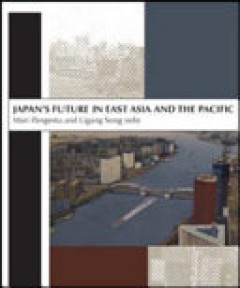
Japan's Future in East Asia and the Pacific
Japan’s Future in East Asia and the Pacific takes a ’big-picture‘ approach to Japan’s economic place in East Asia alongside that of China. It analyses Japan’s successes and experiments in trade policy as well as its failures in macro-economic policy. Japan’s diplomatic and economic integration strategies are also examined for their impact on East Asia and on Australia. The collectio…
- Edition
- 23
- ISBN/ISSN
- 9781921313622
- Collation
- 293
- Series Title
- -
- Call Number
- 337.52.PAN

Framing the global economic downturn: crisis rhetoric and the politics of r…
The global economic downturn that followed the collapse of major US financial institutions is no doubt the most significant crisis of our times. Its effects on corporate and governmental balance sheets have been devastating, as have been its impacts on the employment and well being of tens of millions of citizens. It continues to pose major challenges to national policymakers and institutions a…
- Edition
- -
- ISBN/ISSN
- 9781921666056
- Collation
- -
- Series Title
- -
- Call Number
- 352.3 HAR f
 Computer Science, Information & General Works
Computer Science, Information & General Works  Philosophy & Psychology
Philosophy & Psychology  Religion
Religion  Social Sciences
Social Sciences  Language
Language  Pure Science
Pure Science  Applied Sciences
Applied Sciences  Art & Recreation
Art & Recreation  Literature
Literature  History & Geography
History & Geography